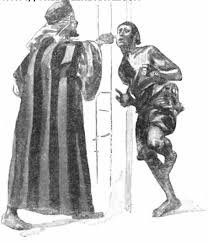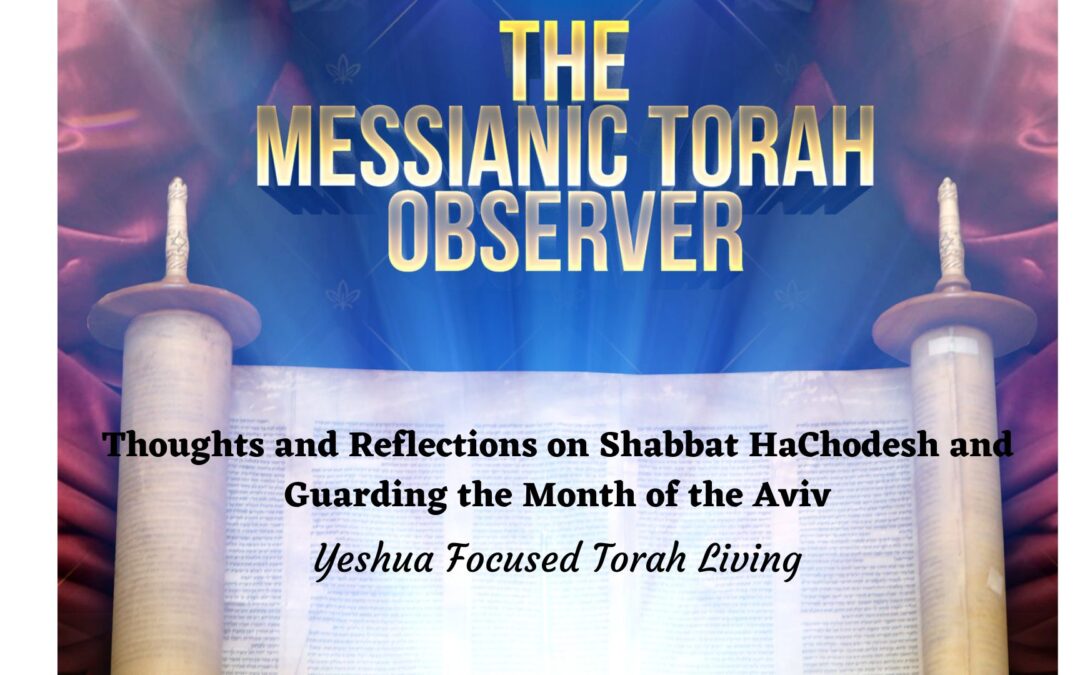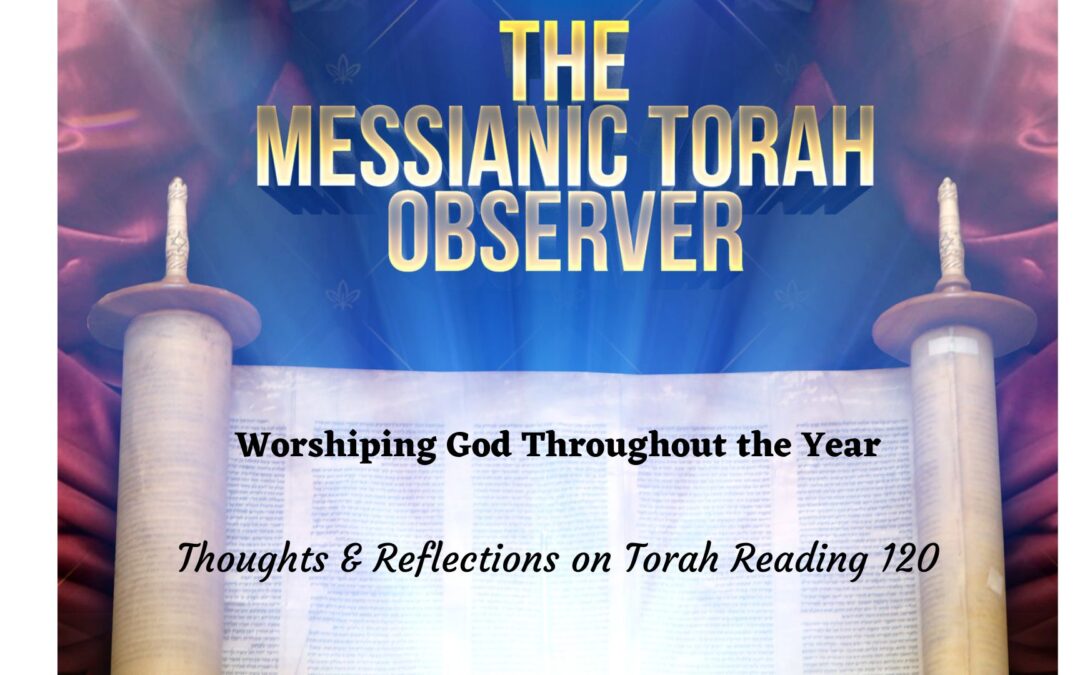Concerning the Treatment of Slaves by Hebrews
The first portion of this week’s Torah Reading deals with the issue of Hebrews owning slaves; particularly Hebrew slaves (Exo. 21:1-11) .
According to this passage, if a Hebrew acquires a Hebrew slave, they would serve that master for 6-years. In the 7th-year that slave would be freed. This is confirmed in Deuteronomy 15:12 which reads,
“And if thy brother, an Hebrew man, or a Hebrew woman, be sold unto thee, and serve thee six years; then in the seventh year thou shalt let him go free from thee” (KJV).
It would seem this ordinance involving the releasing of the Hebrew slave in the 7th month is not directly tied to the Shemitah.
It should be noted that the Hebrews failed to keep this ordinance according to Jeremiah 34:14.
Debt and Slavery
What would justify a Hebrew acquiring a Hebrew slave? The most likely reason is found in Matthew 18:25:
“But forasmuch as he had not to pay, his master commanded him to be sold, and his wife and children and all that he had and payment to be made” (KJV).
In this context, a Hebrew would acquire another Hebrew through unpaid debt.
Ancient Near Eastern custom facilitated that an individual who is in debt to another, be sold into slavery if that debtor is unable to pay off their debt. Torah, although not sanctioning or advocating the practice, established provisions for an individual who is in debt to another to be sold into slavery if the debtor is unable to pay his debt to the master.
Abba, in establishing ordinance regulating the treatment of Hebrew slaves, acknowledged the practice existed. However, Abba established time limits to the servitude. No Hebrew who was enslaved by another Hebrew could be forced into servitude for more than 6-years. That slave was to be released in the 7th year of their enslavement.
Yeshua Clarifies the Practice of Debt Slavery
Yeshua came to clarify Torah for us. In so doing, it was through parable that He taught that the debt owner always had the wherewithal and right to release or forgive his debtor’s debt (Matthew 18).
What Master’s parable teaches the Torah Observant Disciple of Yahoshua is that debt should ultimately be forgiven. No one who is indebted to us, as disciples, should be made to endure unending servitude or strung out debt to us. And this attitude should run across the board and be recognized by every disciple of Messiah.
More Than Material Debt and Slavery
Debt in this sense also transcends the material. Forgiveness is always a virtue that Father has shown to His beloved. The biggest and most pervasive debt we all owe is our sin debt. We are indebted to Father as a result of our sins. Yet Abba has provided a means whereby our debt can be forgiven. We in turn serve and obey Him for his forgiveness of our sin debt.
Likewise, we are compelled to forgive our fellow disciples any physical debts they owe us, as well as any trespasses committed against us by fellow believers.
Master instructed that we lend, hoping for nothing in return…(Luk. 6:35; NKJV).
If we harden our hearts towards those who owe us materially and on a relationship basis, then we stand the risk of not being forgiven by our Heavenly Father. In this regard, Yeshua in the Parable of the Unforgiving Servant stated:
“Then his lord (speaking of the master to the servant who refused to forgive his debtor), after that he had called him, said unto him, O thou wicked servant. I forgave thee all that debt, because thou desiredst me. Shouldest not thou also have had compassion on thy fellowservant, even as I had pity on thee? And his lord was wroth, and delivered him to the tormentors, till he should pay all that was due unto him. So likewise shall my heavenly Father do also unto you. If ye from your hearts forgive not every one his brother their trespasses” (Mat. 18:32-25; KJV).
The Making of a Bond Servant
Nevertheless, back to our Torah Reading passages: Father placed a provision in Torah whereby the servant who chooses to remain in permanent servitude to their master may willingly do so. Thus, the servant desiring bond servant status would be brought to the judgment-seat of God (according to the LXX) or to the judges (according to the KJV and other Authorized Versions) by that master. The purpose appears to be one of making the permanent servitude a publicly stated matter.

A Hebrew slave desiring to serve their master in perpetuity would undergo an ear piercing by an awl on that master’s doorpost.
Upon the conclusion of the proceeding at the judgment seat of God, the servant would then be brought to the door or door post of the master’s home. That servant’s ear would then be pierced by an awl (ie., a metal pointed tool used to punch holes in material like leather).
Thus, that servant would serve that master till the death of the master or of that of the servant (cf. Deu. 15:17).
A Shadow of Good Things to Come
This ordinance is clearly illustrated in our claiming perpetual servitude to YHVH our Elohim. Fortunate for us, Yahoshua Messiah was already pierced on our behalf having himself been judged on our behalf for our sins.
Welcome to Aviv 2024-A Brief Overview of the Month and a Discussion of What God Expects From Us This Month
And Yahweh said to Moses and to Aaron in the land of Egypt, saying, 2 “This month will be the beginning of months; it will be for you the first of the months of the year... “Observe the month of Abib, and you shall keep the Passover to Yahweh your God, for in the...
Why do we Dislike the God of the Old Testament? Thoughts & Reflections on Torah Reading 127
Introduction to Reading 127 This week's Torah Reading is contained in Deuteronomy 2.1-3.22. For all intents and purposes, it is a continuation of last week’s reading. It is the 127th Parashah of our 3-year Torah Reading cycle. I’ve been led to title this...
Deuteronomy-A Rehashing and Retelling of Torah to a New Generation-Thoughts and Reflections on Torah Reading 126
This week's Torah Reading, contained in Deuteronomy 1.1-46, is the 126th portion of our 3-year Torah Portion reading cycle. I’ve entitled this teaching: “Deuteronomy – A Rehashing and Retelling of Torah to a New Generation.” Deuteronomy is where we will be...
Explaining the Current Calendar Confusion Among Observational Calendar Keepers
Explaining the Current Calendar Confusion Among Observational Calendar Keepers Greetings Saints of the Most High. Trusting that this special post finds you, your families, and fellowships are well and blessed at the start of this new week. As I am...
The Torah of the Cities of Refuge–Thoughts and Reflections on Torah Reading 125
Shabbat Shalom. This week's Torah Reading, contained in Numbers 35:9-36:13, is the 125th portion of our 3-year Torah Portion reading cycle. And for our discussion today, we will focus only on verses 9 through 34 of chapter 35. This is, by the way, the final...

Shabbat HaChodesh and Guarding the Month of the Aviv Thoughts and Reflections
Shabbat Shalom beloved of Yeshua Messiah. I pray that this post finds you, your families, and your fellowships well and blessed on this hurried but expectant Preparation Day. 12 And יהוה spoke to Mosheh and to Aharon in the land of Mitsrayim, saying, 2“This new...
The High Expectations for God’s People to Fulfill His Will and Purpose — Thoughts and Reflections on Torah Reading 122
Shabbat Shalom beloved of Yeshua Messiah. This week's Torah Reading is the 122nd reading of our 3-year Torah Portion reading cycle. Our reading is found in Numbers 32:1-42. I’ve entitled this teaching: The High Expectations for God's People to Fulfill...
What God Expects From Us When We Make Vows — Thoughts and Reflections on Torah Reading 121
Shabbat Shalom beloved of Yeshua Messiah. This week's Torah Reading is the 121th portion of the 3-year Torah Portion reading cycle. Num 30:1-31:54 contains this week's Torah Reading. I’ve entitled this teaching: What God Expects from us When We Make Vows...

Worshiping God Throughout the Year — Thoughts and Reflections on Torah Reading 120
Shabbat Shalom beloved of Yeshua Messiah This week's Torah Reading is the 120th portion of the 3-year Torah Portion reading cycle. Num 28.1-29.40 contains this week's Torah Reading. I’ve entitled this teaching: Worshiping God Throughout the Year — Thoughts and...
The Generational Inheritance Covenant Realized — Thoughts & Reflections on Torah Reading 119
Shabbat Shalom beloved of Yeshua Messiah. This week's Torah Reading is the 119th portion of the 3-year Torah Portion reading cycle. Num 26:52-27:23 contains this week's Torah Reading. In last week's reading, Abba instructed Moshe to conduct a census of...

0 Comments